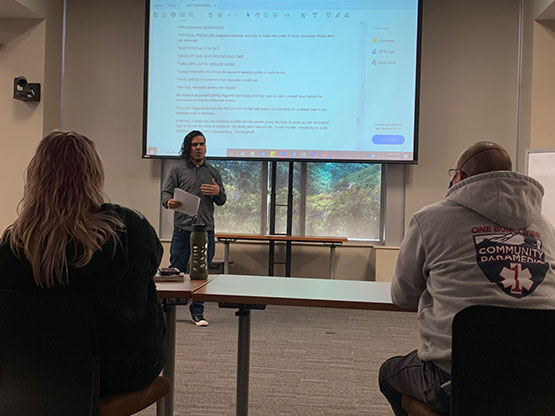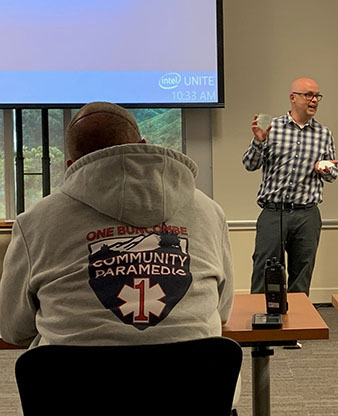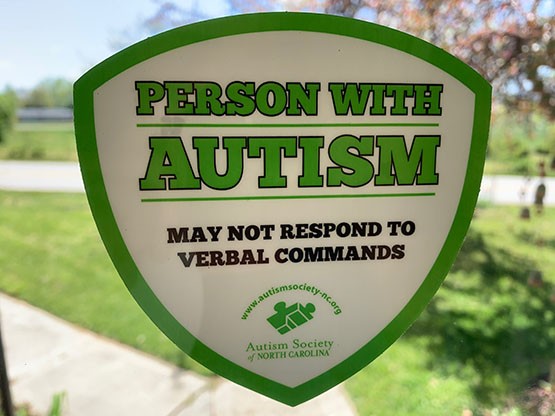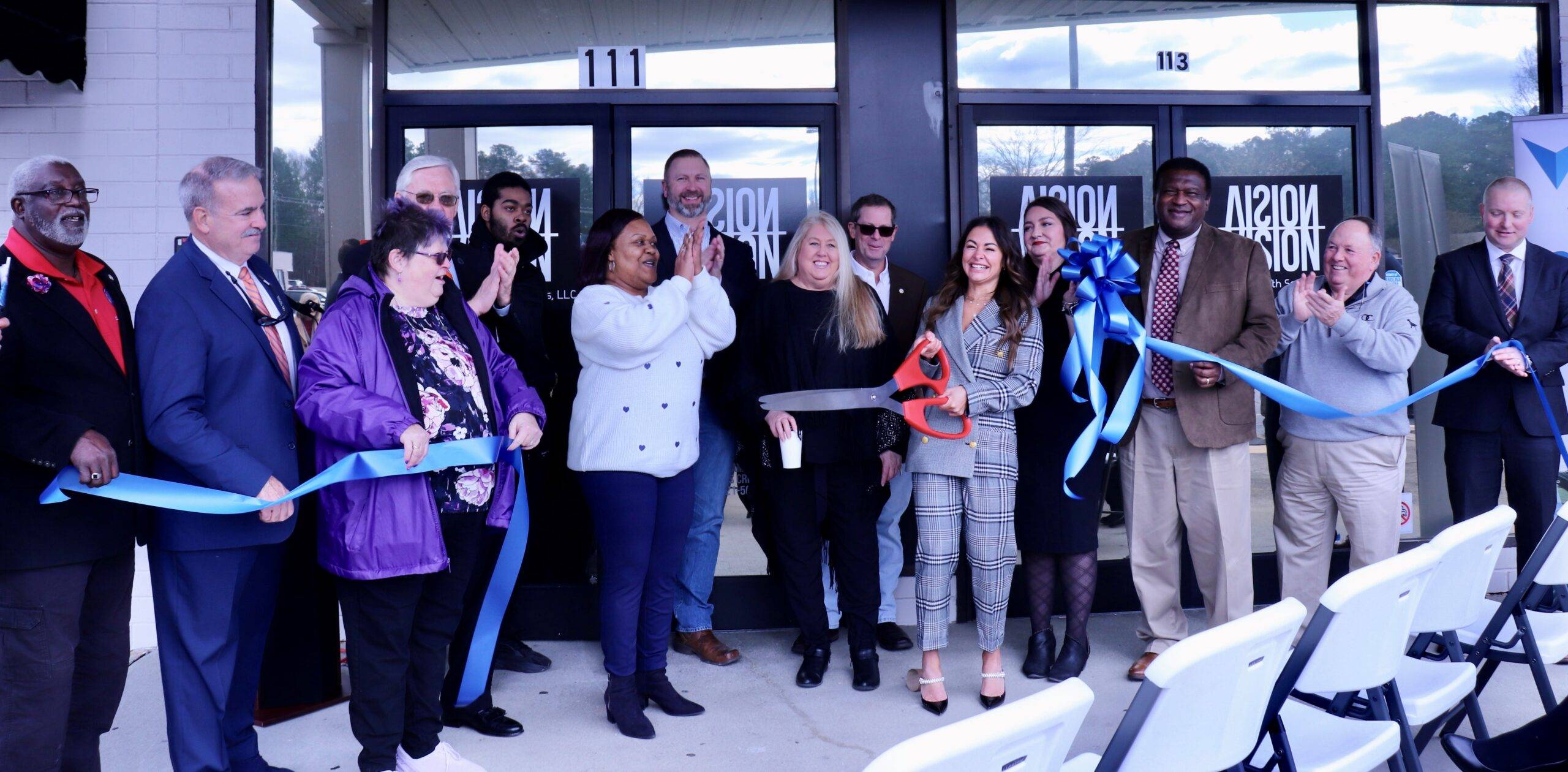“Was there something else we could have done in that situation?”
That was a question posed by a paramedic during a training by the Autism Society of NC when talking about responding to an emergency situation that had escalated to the point where an individual with autism had to be sedated and hospitalized. Although there’s information and strategies around autism out there, it can be understood on a whole different level when someone with autism speaks about their own experience and how to better communicate.
“I would love to help first responders to better understand autism, especially in stressful situations, and give better strategies to help,” said Danny, a Vaya Health member with autism and executive director of Autistics United.
Danny’s presentation at the Supporting Individuals with Autism in Emergency Services Situations: A Training for Paramedics and Mental Health Partners covered some of the behaviors to expect from someone with autism, such as not making eye contact, self-injurious harm and stimming, such as hand-flapping, rocking, spinning or repeating words and phrases. Although people with autism may display similar behaviors, each individual has their own preferences and techniques that help them calm down, and it’s up to the first responder to work with the individual and their natural supports to find the way to best communicate.

“In the past few years, especially here in western North Carolina, we’ve seen a real movement to people with autism speaking for themselves,” said Michael LePage, the regional services director for the Autism Society of NC. “It’s a great opportunity to hear from someone who is autistic himself and identifies as autistic. Danny is an amazing person. He’s won multiple awards for self-advocacy and being a great advocate for the autistic community.”
Danny shared information and stories gathered from members in Autistics United as well as some of his own. By sharing personal stories, such as family threatening to call police because of a meltdown he was experiencing, he was able to bring to light the tendency for people with autism to become overwhelmed and unable to express themselves through words in stressful situations. And as stressful as it can be for the individual with autism, Michael knows how it feels from the parent side.
“As a parent, when you have to pick up that phone and call the police or first-responders, it sucks,” Michael said. “You feel awful and you feel like a failure because everything that we worked on to avoid this moment has not worked and now the situation has escalated.”
Michael got across the idea that although it might be a first responder’s duty to react quickly and it’s our societal tendency to repeat information or add extra words, that can actually make the situation worse for someone with autism.

“I know time is of the essence, and it’s going to seem counterintuitive in a way to slow down your verbal communication, but it might be the exact tool that you need to de-escalate the situation,” said Michael. “It’s less words, not more, that are meaningful. It’s just a way of us learning how to communicate with each other and bridge that gap.”
In addition to understanding how people with autism react differently in these types of situations and techniques to better handle it, the training was also a way to encourage professionals to share the tools they learned with others and work to proactively engage with the community. By helping break down the stigma and encourage trust between people with autism and first responders, police and other authority figures will help put a foundation in place before a crisis arrives.

“In the end it takes two – the individual autistic and the person giving the help – to come up with alternative ways to handle the crisis or meltdown,” said Danny.
For information and resources on autism and training, visit www.autismsociety-nc.org. More information about Autistics United can be found at www.autistics-united.com.



